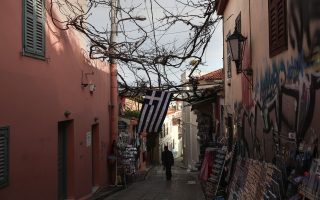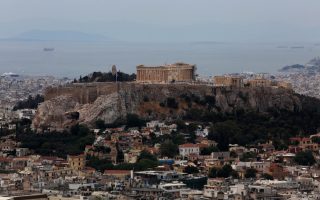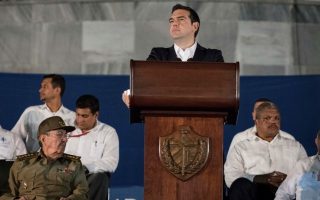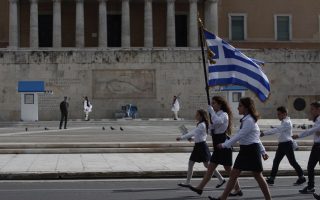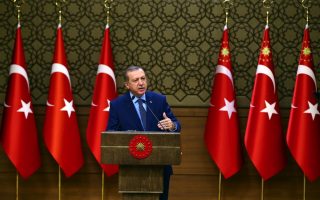Greece in the 1980s: A correspondent remembers
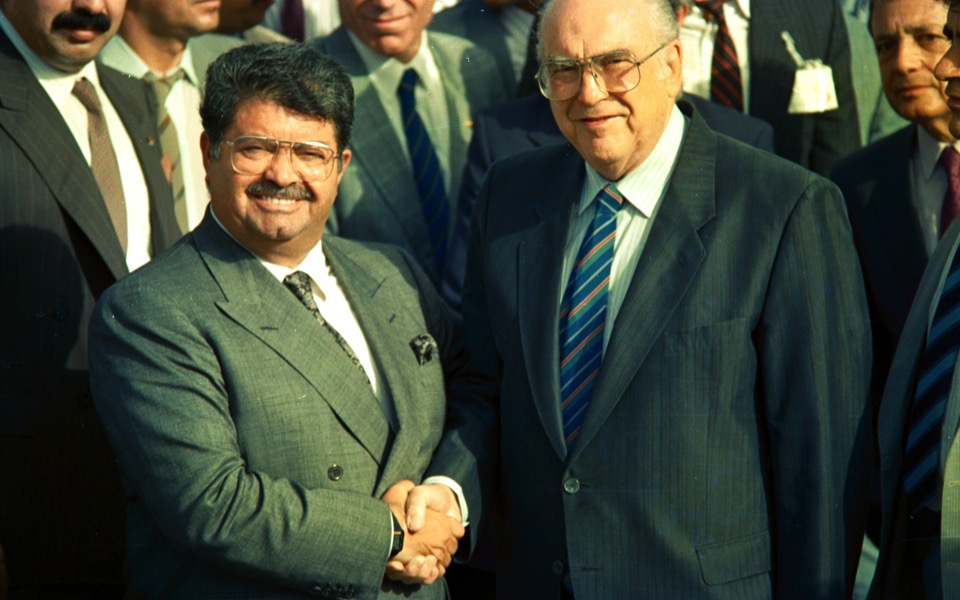
The early 1980s were a good time to be a foreign correspondent in Greece, as long as you were thick-skinned, adaptable and had a sense of humor. The early, passionate days of Andreas Papandreou’s leadership gave us plenty of material.
Whether he was embracing Muammar Gaddafi or Yasser Arafat, or sending shocking messages to his partners in NATO or the European Union, he made colorful copy. Our editors were intrigued by the Californian professor who become an anti-American firebrand and threatened to remove Greece from the Western alliance at the very moment when superpower tensions were reaching a dangerous climax.
Among most correspondents, ranging from veteran reporters with memories of the junta to newly arrived youngsters like me, there was an initial feeling that we should give the PASOK government the benefit of the doubt. I was young and inexperienced, just 24 years old when Reuters sent me to be its first expatriate correspondent in Greece in 1982. But like my older colleagues, I could see the inequalities of wealth and power which had propelled Papandreou to electoral victory. We all understood that Greece’s laws and institutions were old-fashioned, illiberal, and in serious need of modernization.
We also understood why many Greeks resented the recent memory of the military regime and of the cordial relations which the colonels had enjoyed with the Nixon administration. True enough, we suspected that continuously blaming the “foreign factor” for Greece’s woes might be a convenient way to avoid any real collective self-examination. But if that was an exercise in denial, perhaps it was a forgivable kind of denial. The foreign factor really had played a dark role in Greece and people were entitled to be angry.
Despite that relatively promising background, most of us came to feel we were living under a sort of hostile regime. The Papandreou government was very hard for a foreign journalist, even an open-minded one, to deal with. The Foreign Ministry had no spokesperson. Hardly any other ministry or government agency had a representative who was authorized to deal routinely with the foreign press. The general spokesman for the government, Dimitris Maroudas, was a genial, unsophisticated and disorganized figure who spoke no foreign language. So it was hard to reach anybody in the government, unless you happened to have a personal connection.
Yet the government (and indeed the whole Greek establishment) seemed highly sensitive to whatever the foreign press wrote. Every so often, the government, or Papandreou personally, would make a sharp rejoinder to some critical comment penned by a foreign journalist. The Greek press would then join in excoriating the unfriendly foreigner.
As we gradually realized, the reason for the poor channels of official communication was not simply a lack of organization. The truth was that ministers and senior civil servants were all rather nervous of Papandreou and his caprices. People who claimed to be interpreting his ideas, and sharing them with outsiders, could find themselves suddenly embarrassed. On many matters, there was simply no consistent or considered government policy which could be explained to a journalist. The “policy” was whatever Papandreou happened to say from one day to another, and no official would dare to predict whether the leader’s next outburst would be anti-Western, pro-Western or something in between.
Over time, it became clear that a relatively sophisticated game of smoke and mirrors was being played, and that we journalists were somehow drawn in. To satisfy his voters, Papandreou needed to give the impression that he was defying the masters of the Western world in a dramatic way. But the truth was that a definitive break with the West was not in Greece’s interests. Such a break would have carried a very heavy cost, which Greek citizens had no interest in paying. So Papandreou had to combine rhetoric and gestures with quiet tactical concessions.
The gestures were certainly eye-catching. He described the United States as the “metropolis of imperialism” and demanded a postponement, at least, of the deployment of new American missiles in Europe. He refused to join his European Community partners in condemning the Soviet Union for shooting down a Korean airliner. He talked a lot about turning the Balkans into a nuclear-free zone. We duly wrote articles about all these things. But on matters of substance, he dealt prudently with the Americans. They kept their military bases, their Voice of America transmitters and the right to store tactical nuclear weapons in Greece. Small wonder that one colleague, writing for a leading American newspaper, was quietly discouraged by the American embassy from reporting too much about Papandreou’s rhetorical outbursts. “Don’t take the rhetoric too seriously, you know he doesn’t mean it,” the embassy told her.
But the truth was that we could not avoid reporting those outbursts. The outbursts were part of the story, and we were part of the game.
* Bruce Clark was Reuters correspondent in Greece between 1982 and 1986. He went on to work for the London Times, the Financial Times and the Economist. He is the author of “Twice a Stranger,” a book about the population exchange between Turkey and Greece mandated by the Lausanne Treaty.
